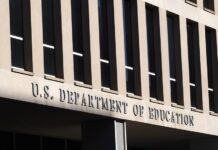
(GA Recorder) — The Supreme Court of Georgia appears to have zapped Camden County’s plans to build a site to launch spacecraft near the state’s southeast corner.
“The county has been told – and this slaps ‘em good and hard – that the county is not going to be the one to do it,” said Camden County Commissioner Jim Goodman. “I think it’s political suicide for any commissioner to go along with any deal like this.”
Goodman, who was elected in November, has long opposed the project and has butted heads with fellow commissioners over the plans. He said the decision amounts to curtains for the proposed spaceport.
“They hold out the hope that some venture capitalist or some private investor, some Elon Musk will come along and build a spaceport. That’s not going to happen,” he said. “You don’t launch rockets over people’s heads.”
The court ruled Tuesday that the county must abide by a March 2022 referendum in which nearly three-quarters of Camden voters opposed the spaceport.
Environmental groups also opposed the project. Coastal nonprofit One Hundred Miles was involved with lawsuits against the county and warned that rocket launches could lead to catastrophic pollution and fire risk for nearby Cumberland Island.
“The Georgia Supreme Court’s ruling shows that the Justices took both sides’ arguments very seriously,” said executive director Megan Desrosiers after the decision was announced Tuesday. “They took the amount of time they needed to issue a decision that was fair and right according to the state Constitution and for the benefit of all Georgians.”
Over the years, the Camden County Board of Commissioners approved spending more than $11 million trying to get the project launched. In a statement Tuesday, board spokeswoman Claire Feazel said county leaders will be assessing their options.
“While the Supreme Court ruling regarding a local government’s Home Rule authority is discouraging to hear, the Camden County Board of Commissioners respects the difficult decision made by the Justices of the Georgia Supreme Court,” Feazel said in a statement. “Clearly, given the complexity of this decision on Home Rule and how it will impact local governments moving forward, this will be a matter that the General Assembly will need to address quickly to preserve the representative democracy we have in this great state.”
“The future of Spaceport Camden remains a decision of the Camden County Board of Commissioners and, as such, will be discussed at a future meeting,” Feazel added.
Plans for the facility took off in 2015 when the county reached an agreement with chemical corporation Union Carbide for the purchase of land on which to build it, but not everyone was over the moon about the idea.
Proponents said the project would bring tens of millions of dollars into the local economy through new jobs and increased tourism, but neighbors expressed concerns about the project, including the potential for noise, safety issues and harm to the environment.
By late 2021, residents had filed a petition seeking a vote on the land purchase using the Home Rule Paragraph, a part of the Georgia Constitution that grants residents the right to seek a referendum undoing their local government’s decisions if they can obtain enough signatures from registered voters.
Union Carbide pulled out of the sale following the vote.
The county argued that the petition contained “a number of duplicate and inconsistent voter signatures,” and if those were not counted, it would not meet the constitutional test for a referendum. They sought to order Camden County Probate Court Judge Robert C. Sweatt Jr. to declare the petition invalid and refrain from certifying the results of the election.
Tuesday’s unanimous opinion by Justice Carla Wong McMillian sided with a lower court’s ruling that the county had no authority to oppose the petition.
“The Home Rule Paragraph makes no provision authorizing a county, or any other party, to file a caveat, or any other form of opposition, to an electors’ petition in the probate court,” McMillian wrote.
First Amendment advocates argued that citizens’ right to petition their local government is essential, but Chief Justice Michael P. Boggs and Justice Charlie Bethel expressed reservations with the decision’s implications for voter pushback, worrying that it could “usher in a frightful season for local governments in Georgia,” according to a concurring opinion written by Bethel and joined by Boggs.
Bethel said the decision represents the best possible interpretation of the constitution, but it could also make it easier for those with bones to pick over things like zoning ordinances, budget decisions or tax rates to call for frivolous votes.
“I worry that a considerable minority group or groups within a community will be empowered to regularly subject their local community to the expense of a series of referenda as a means of either protest or in an attempt to thwart the will of a fatigued majority in a low turnout election,” Bethel wrote. “I hope I am wrong.”







